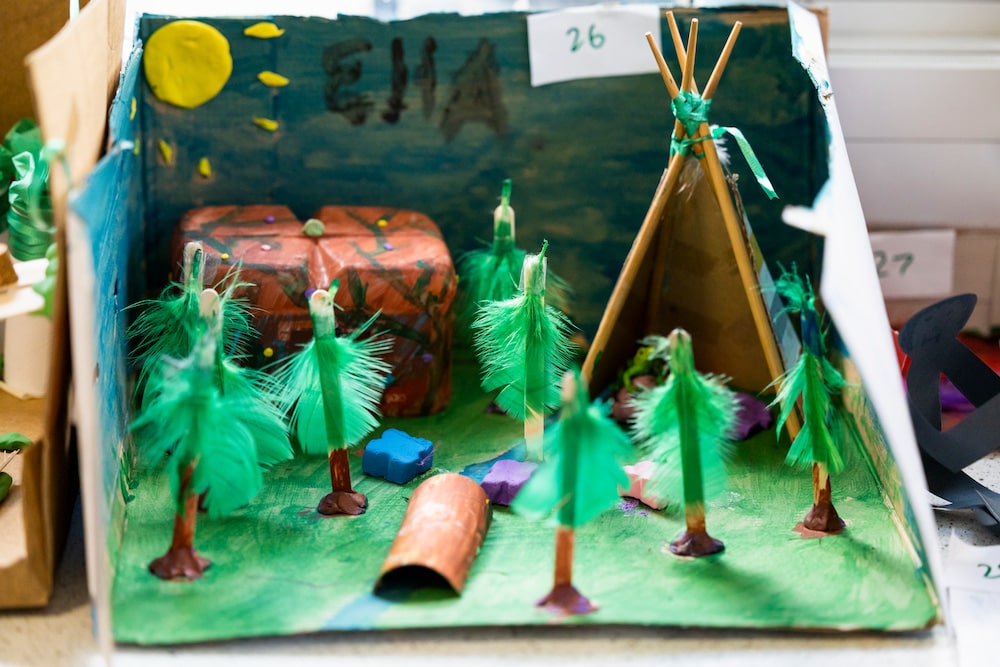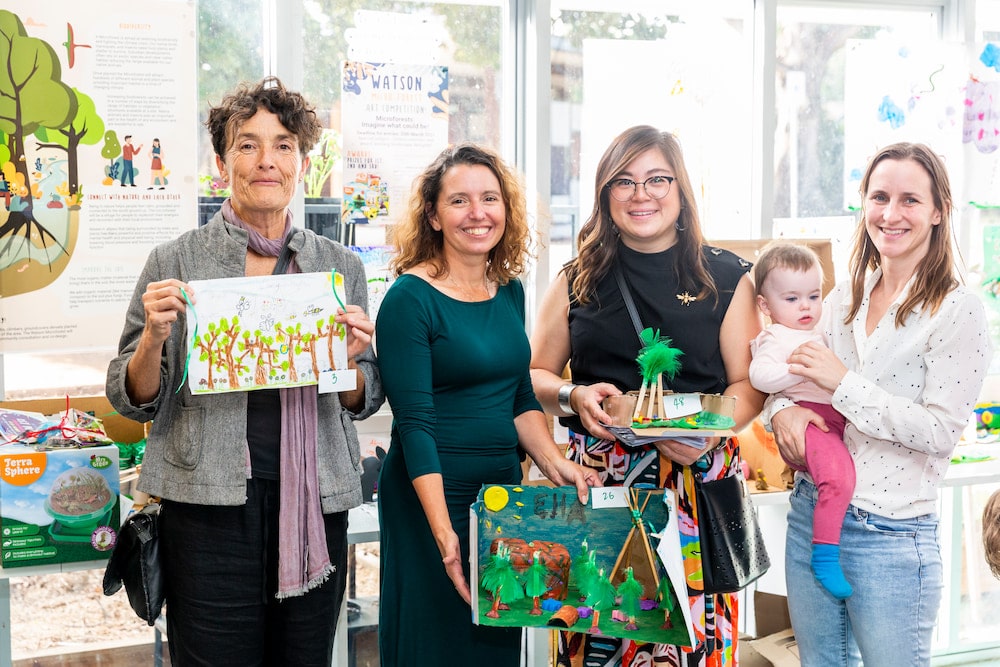The micro-forest movement is taking root in the ACT, planting seeds of ecological awareness in fertile young minds. Children at Majura Primary School are learning about the environment as they design their new classroom – outdoors.
Come spring, 1,500 native plants will be planted in Wade Street Park, near the school. The area will contain a forest classroom for outdoor learning, Indigenous bushfood, and an integrated nature playscape.
Landscape architect Edwina Robinson came up with the micro-forest concept in 2019, inspired by Japanese botanist Akira Miyawaki’s technique for building dense, native forests in 20 to 30 years.
The micro-forest is described as an urban sanctuary to combat climate change, strengthen community, and reconnect people to nature. All the trees are native plants that can cope with hot, dry temperatures. Trees, moreover, cool temperatures in summer by up to eight degrees, while the micro-forests enhance biodiversity (“a stepping-stone for animals through the suburbs”), and create spaces where children can play imaginatively, rather than on fixed equipment.
More than 83 children created dioramas and pictures to show what they imagined the micro-forest could look like. There were forests of feathers, tepees, firepits, ponds, koalas on roundabouts, and plesiosaurs frolicking in plasticine ponds. (Some could be terrifying, though; one diorama crawling with snakes, giant beetles, and poison arrow frogs looks like an attempt to outdo Indiana Jones or King Kong.)

Ms Robinson and Rebecca Vassarotti, ACT Minister for Environment, awarded prizes to the best designs on Wednesday. Picking the winners was one of the hardest things Ms Vassarotti had done in her time in politics, she told the students.
The ACT’s first micro-forest was planted in Downer last year.
In 2019, Ms Robinson set up her social enterprise, the Climate Factory, to help communities create climate-cooling outdoor spaces, in response to Australia’s hottest and driest recorded temperatures. A crowdfunding campaign and a community grant were successful; 1,300 trees were planted in September 2020, and 500 more will be planted this autumn.
Inspired by the Downer micro-forest, Liz Adcock and Purdie Bowden decided to plant a similar micro-forest in Watson. The project co-leads raised $53,000 through crowdfunding over summer.
They believe it is important to listen to the children, and reflect their ideas in the designs.
“We want the micro-forest to help kids understand the challenges of combatting climate change and protecting biodiversity – while also empowering them to do something about it,” Ms Adcock said.
And children as young as four are becoming budding ecologists. Kids at Majura Pre-school created micro-forests from playdough and natural materials; Ms Adcock was impressed by one youngster who explained: “Trees will clean the smoke.”
“They might not know the large-scale importance and impact of climate change, but I think they understand the importance from their experiences,” Ms Adcock said. “You can educate them on the micro-forest – or Cool Land! – and they can think about it in their own way.”
Ms Bowden agreed. “There’s clearly a lot of awareness about the natural world; it’s an important concern for this generation. You can see that kids are concerned about bees, and about habitat for wildlife.”
A third micro-forest in the ACT will soon be planted in Sullivan’s Creek, Lyneham, and Ms Robinson hopes to have a micro-forest in every urban hotspot in Australia.
Ms Vassarotti said the ACT Government will look at ways to support these projects. Community-led projects are important, she believes, particularly as the government moves through the next stages of its Climate Change Strategy.
“Young people get it – nine-year-olds see what’s going on, and they know that we need to take action. It’s important that we listen to them. They’re the ones who will inherit the action or inaction of our generation. They are highly engaged, highly articulate, and rightfully expecting us to respond to climate change.”
For more news:
- ACT shuts border to Greater Brisbane, returned travellers to quarantine
- Police target illicit firearms during national week of action
- Dickson and Braddon design upgrade plans revealed
- Anzac Hall shuts its doors – and early works include demolition
- Keeping tradition: Foot traffic the first to cross new Batemans Bay Bridge



